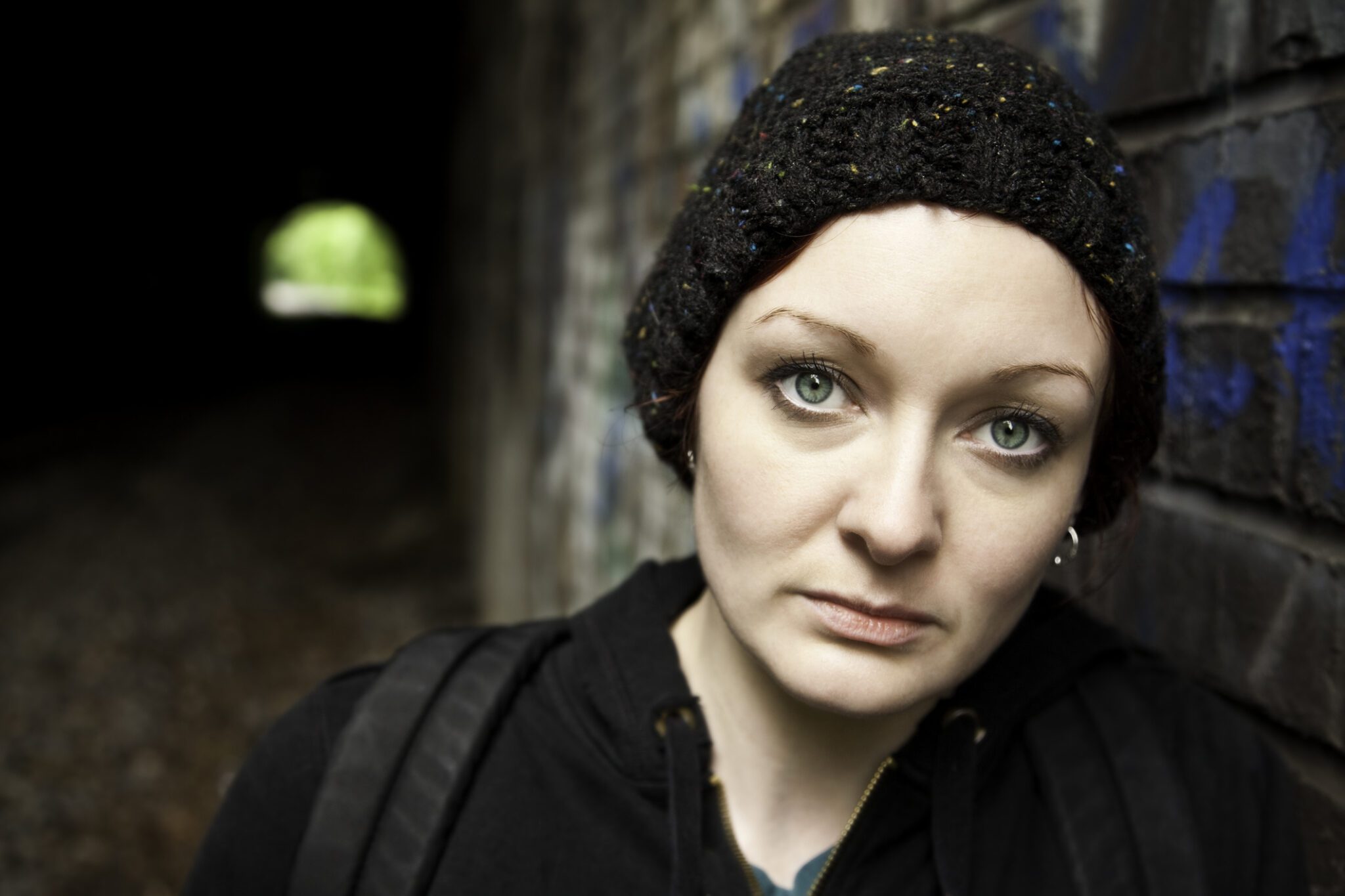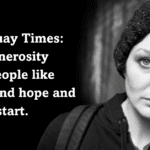The weight of stigma is crushing for people like Cathy..
When you first meet Cathy, you’re immediately struck by her intelligence, strength and the hope that radiates from her.
Cathy has seen and experienced the worst of humanity, and now, thanks to you, the best of it. We know that you understand that addiction is rarely a choice, but a complex web of trauma, abuse and a desperate lack of support.

For Cathy, addiction wasn’t a sudden fall, but a gradual slide that began within a violent childhood. She grew up with nine siblings, and her parents turned to alcohol when they were unable to make ends meet.
“Mammy and Daddy were both big drinkers, that’s how they dealt with things.”
But even more damaging was the constant fear of violence. He used pots, belts, whatever he could lay his hands on. In one of the most horrific beatings, her father beat Cathy with a hammer.
“I couldn’t move for two days after. My sister had to carry me up the stairs. I was in a bad way.”
Can you imagine how it must feel for a young girl to be beaten like that by the person she should have been able to rely on to protect her, and love her the most? To escape the pain, Cathy started using drugs at just ten years old. She began smoking weed and experimenting with pills to numb the hurt. She began looking for love in all the wrong places. Desperate to feel like she mattered.
Read the Summer edition of Quay Times here
“I just wanted to make the fear and pain go away. I just wanted to feel a bit of love I suppose, like I mattered to someone”</cen
Her pain only deepened when her mother passed away. It was at this time that Cathy became involved in a terrifying and abusive relationship that would last almost a decade. Cathy’s partner was violent and controlling, and in her words
“Our relationship went hand-in-hand with my addiction. He’d give me drugs, and I’d need them to cope with the abuse.”
She was isolated from everyone she knew, and when they’d be in public he would demand that she walk behind him and keep her eyes to the ground. Cathy lived in fear of her violent boyfriend, afraid to raise her eyes or open her mouth.
“My face never looked normal when I was with him. I always had a black eye or a swollen lip. People would look at me and look away quickly, like they didn’t want anything to do with me.”
This devastating pattern is one we see too often.. It starts with a traumatic childhood, turning to drugs to cope, and sadly, abused children becoming abused adults, who very often are at risk of experiencing homelessness. From the very beginning, the odds are stacked against them. For a woman, homelessness comes with more dangers – the threat of violence and exploitation is heightened and constant. For Cathy, each night on the streets brought intense fear.
“I just prayed for safety, but the reality is there’s no safety to be found when you have to sleep rough. I felt like nobody cared about me. I remember once walking down the street and seeing two of my oldest friends, and they just walked straight past me. That destroyed me, I felt worthless. I wanted to disappear. I started covering myself up, wearing big jackets. Even going to the doctor was difficult because I felt like a burden, I was so worried about being judged.”
The weight of stigma is crushing for people like Cathy. It makes a person feel less than and in a constant state of shame. It creates a barrier that stops so many from getting the help they need.
Instead of judgment, you offer a helping hand. You made it possible for Cathy to receive a life-changing call from St. Francis Farm Detox and Rehabilitation Centre.
Through the detox and rehab programmes at St. Francis Farm and later our aftercare program, Cathy began the journey of healing and self-discovery.
“I’m not afraid to say what I want or how I feel anymore. I’ve found my voice, found myself again. I hadn’t felt like myself in such a long time I didn’t know who I was anymore. That’s what Merchants Quay and my case worker have done for me, they’ve given me back my life”
Donate to support people like Cathy in rebuilding their lives
You supported Cathy throughout her recovery. You did it because you believe in helping others, and so does she. She’s now studying social care in college, with a clear goal of working with children from difficult or abusive homes. She wants to provide the comfort and understanding she never had growing up. Cathy’s story is proof of what you already know. Addiction isn’t a moral failing, it’s a complex issue often deeply connected to past trauma and a lack of support.
Thank you for your support and commitment, it’s transforming lives. Your love and compassion helps women like Cathy find their path to recovery and build a life beyond addiction and homelessness.

